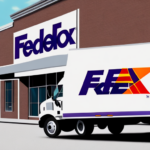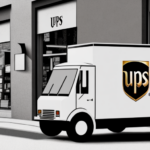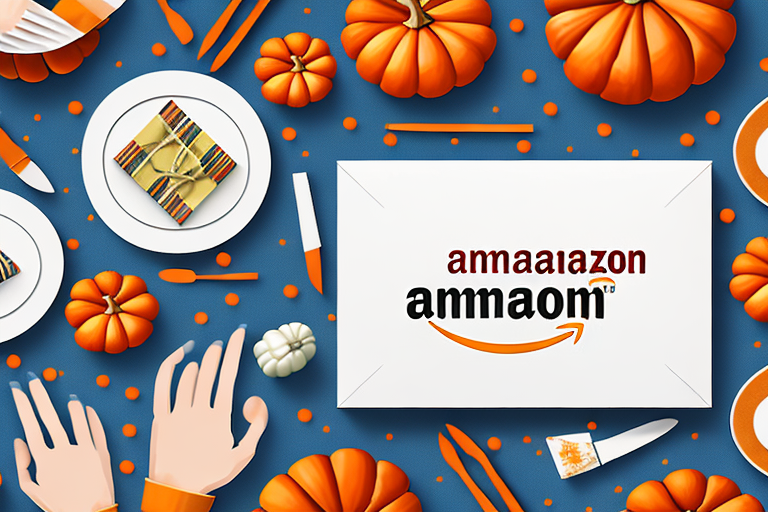Is Black Friday Dying?
For decades, Black Friday has been a cornerstone of the shopping industry. Traditionally the day after Thanksgiving, it signals the start of the holiday shopping season, with retailers offering substantial discounts and shoppers lining up early to seize the best deals. However, as we advance further into the digital age, questions arise about the continued relevance of Black Friday. This article delves into the history, current state, and potential future of Black Friday, assessing whether it is indeed on the decline.
The History of Black Friday: How It Came to Be
Black Friday traces its origins to the early 20th century, when department stores in major cities organized parades to launch the Christmas shopping season. The term itself emerged in Philadelphia in the 1960s, used by police officers to describe the chaos and congestion caused by the influx of shoppers the day after Thanksgiving.
Over the years, "Black Friday" became synonymous with shopping frenzy, prompting retailers to offer significant discounts and doorbusters to attract customers. In recent times, some stores have even begun opening on Thanksgiving Day to gain an early advantage over competitors, particularly online retailers.
Despite its popularity, Black Friday has faced criticism for fostering consumerism and materialism, diverting focus from the holiday season's true meaning: spending time with loved ones and community giving.
Moreover, the intense shopper rush has raised safety concerns and led to tragic incidents. For instance, in 2008, a Walmart employee was fatally trampled by a crowd in Long Island, New York. In response, many retailers have implemented safety measures like crowd control and limited quantities of high-demand items.
The Rise of Online Shopping: Is It Killing Black Friday?
While Black Friday remains a major shopping event, it faces growing competition from online retailers. An increasing number of consumers prefer to shop from the comfort of their homes rather than enduring the crowds and chaos of physical stores.
The surge in online shopping has impacted Black Friday in several ways. Customers can now effortlessly compare prices and hunt for deals across multiple retailers without leaving their couches. Additionally, online retailers often provide free shipping and returns, enhancing convenience. This shift has also given rise to Cyber Monday, now one of the year's biggest shopping days.
However, Black Friday still holds sentimental value for many shoppers. The tradition of waking up early with family and friends to pursue deals is cherished by some. Others enjoy the tactile experience of inspecting products before purchasing, which online shopping cannot replicate.
Black Friday Sales Numbers: A Look at the Data
Despite the rise of online shopping, Black Friday continues to be a significant event for retailers. According to the National Retail Federation, in 2023, in-store Black Friday sales reached $9 billion, up 3% from 2022. Online sales also saw a boost, totaling $10.5 billion, a 15% increase from the previous year.
However, growth rates have moderated compared to previous years. In 2022, in-store sales grew by 5%, while online sales increased by 20%. This slowdown suggests that while Black Friday remains robust, it's evolving in response to changing consumer behaviors.
The popularity of Cyber Monday continues to influence Black Friday's trajectory. In 2023, Cyber Monday sales hit $12 billion, marking a 10% increase from 2022. This trend indicates a consumer shift toward online deals, potentially diminishing Black Friday's dominance.
The Impact of COVID-19 on Black Friday Sales
The COVID-19 pandemic profoundly affected the retail landscape, including Black Friday. In 2020, many retailers opted to remain closed on Thanksgiving to minimize crowd gatherings and protect employees. Shoppers increasingly turned to online platforms due to health concerns, accelerating the shift towards e-commerce.
Black Friday 2021 saw online sales reach $11.3 billion, a 17% increase from 2020, according to Adobe Analytics. This growth persisted into 2022 and 2023, highlighting a lasting impact of the pandemic on shopping behaviors.
Small businesses were particularly vulnerable during the pandemic, struggling to compete with larger retailers' online presence. Many small enterprises pivoted to e-commerce, utilizing platforms like Shopify and Etsy to maintain operations and reach broader audiences.
The pandemic also underscored the importance of employee safety in retail. Enhanced safety protocols, including social distancing measures and the provision of personal protective equipment (PPE), became standard practices to ensure workforce well-being.
The Evolution of Consumer Behavior on Black Friday
As consumer preferences evolve, retailers innovate to meet changing demands. Some retailers now offer "early Black Friday" deals in the weeks leading up to Thanksgiving, distributing demand more evenly and reducing in-store congestion on the pivotal day.
Personalization has also become key. Retailers leverage data analytics to offer targeted sales and promotions tailored to specific customer segments, enhancing the shopping experience and fostering customer loyalty.
Subscription services and loyalty programs have gained prominence, encouraging repeat purchases and providing exclusive deals to members. This strategy not only boosts sales but also strengthens the retailer-customer relationship.
Alternatives to Black Friday: What Other Shopping Events Are Gaining Traction?
While Black Friday remains significant, several alternative shopping events are gaining popularity. Amazon's Prime Day, held in mid-summer, has evolved into one of the year's largest shopping events, often surpassing Black Friday in sales figures.
Small Business Saturday, taking place after Black Friday, encourages consumers to support local businesses. This event has grown in prominence, offering a meaningful alternative to the mass-market focus of Black Friday.
Additionally, Good Shop's Summer Sale and various industry-specific sales events provide consumers with diverse opportunities to shop, reducing reliance on Black Friday as the sole major sales day.
How Retailers Are Adapting to Changing Consumer Preferences on Black Friday
Retailers are continuously adapting to shifting consumer preferences by introducing innovative deals and promotions. Early Black Friday deals spread demand over a longer period, alleviating the intense rush on a single day.
Personalized marketing strategies target specific customer segments with tailored offers, enhancing the shopping experience and increasing the likelihood of purchases. Additionally, integrating omnichannel strategies ensures a seamless shopping experience across online and offline platforms.
Retailers are also enhancing their digital presence through improved websites and mobile apps, facilitating easier navigation and faster transactions for online shoppers.
The Impact of Social Media on Black Friday Sales
Social media plays a pivotal role in shaping consumer behavior during Black Friday. Retailers utilize platforms like Facebook, Instagram, and Twitter to promote Black Friday sales and engage with customers.
Consumers use social media to discover deals, share promotions, and seek recommendations from their networks. Influencers and celebrities often collaborate with brands to amplify their Black Friday campaigns, leveraging their large followings to drive sales and increase brand visibility.
Live streaming and real-time updates on social media platforms create a sense of urgency and excitement, encouraging spontaneous purchases and participation in flash sales.
Experts Weigh In: Will Black Friday Survive the Next Decade?
As we look ahead, experts are divided on Black Friday's longevity. Some believe that the shift towards online shopping and alternative sales events may diminish Black Friday's prominence. The continued growth of e-commerce suggests a potential decline in traditional in-store sales.
Conversely, others argue that Black Friday's entrenched position in the retail calendar ensures its persistence. Its role as a kickoff to the holiday shopping season and the cultural significance attached to the event contribute to its resilience.
Ultimately, Black Friday is likely to evolve rather than fade, integrating more digital elements and adapting to consumer preferences while maintaining its core appeal as a major shopping event.
Tips for Maximizing Your Savings on Black Friday
To capitalize on Black Friday deals, consider the following strategies:
- Research Ahead: Identify retailers offering the best deals in advance to avoid impulsive purchases.
- Shop Online: Utilize online platforms to compare prices, read reviews, and access exclusive online discounts.
- Leverage Loyalty Programs: Enroll in retailer loyalty programs to access member-only deals and additional savings.
- Use Price Tracking Tools: Employ tools like CamelCamelCamel to monitor price changes and ensure you’re getting the best deal.
- Create a Budget: Set a spending limit to avoid overspending and impulse buys.
The Pros and Cons of Shopping on Black Friday
Black Friday offers several advantages:
- Deep Discounts: Access to significant price reductions on a wide range of products.
- Exclusive Deals: Availability of limited-time offers and doorbusters not found elsewhere.
However, there are also drawbacks to consider:
- Crowded Stores: Large crowds can make the shopping experience stressful and uncomfortable.
- Impulse Purchases: The pressure to take advantage of deals can lead to unnecessary spending.
- Stock Limitations: High-demand items may sell out quickly, leading to disappointment.
The Future of Holiday Shopping: What Can We Expect?
The future of holiday shopping is poised for continued evolution. While Black Friday remains a significant event, the rise of personalized shopping experiences and omnichannel retail strategies will shape consumer behaviors. Online shopping is expected to grow, driven by advancements in technology and changing consumer preferences for convenience and flexibility.
Retailers will likely focus on integrating artificial intelligence and machine learning to offer personalized recommendations and streamlined shopping experiences. Additionally, sustainability and ethical considerations are becoming increasingly important, influencing purchasing decisions and shaping the types of deals consumers seek.
The holiday shopping landscape will continue to adapt, embracing innovation while retaining traditional elements that resonate with consumers.
How Small Businesses Are Competing with Big Retailers on Black Friday
Traditionally dominated by large retailers like Walmart and Target, Black Friday has seen small businesses finding creative ways to compete. Strategies include:
- Online-Only Deals: Leveraging e-commerce platforms to reach a broader audience without the overhead of physical stores.
- Personalized Experiences: Offering bespoke products and personalized customer service to differentiate from mass-market retailers.
- Unique Product Offerings: Providing exclusive or handmade items not available from larger competitors.
Events like Small Business Saturday play a crucial role in promoting and supporting small enterprises, encouraging consumers to prioritize local businesses during the holiday season.
In Conclusion
Is Black Friday dying? While growth rates may have slowed and the retail landscape continues to evolve, Black Friday remains a significant event for both retailers and consumers. The integration of online shopping, personalized deals, and alternative shopping events suggests that Black Friday is adapting rather than disappearing. As the holiday shopping season continues to be vital to the economy, Black Friday is poised to maintain its relevance, albeit in a transformed and diversified retail environment.






















